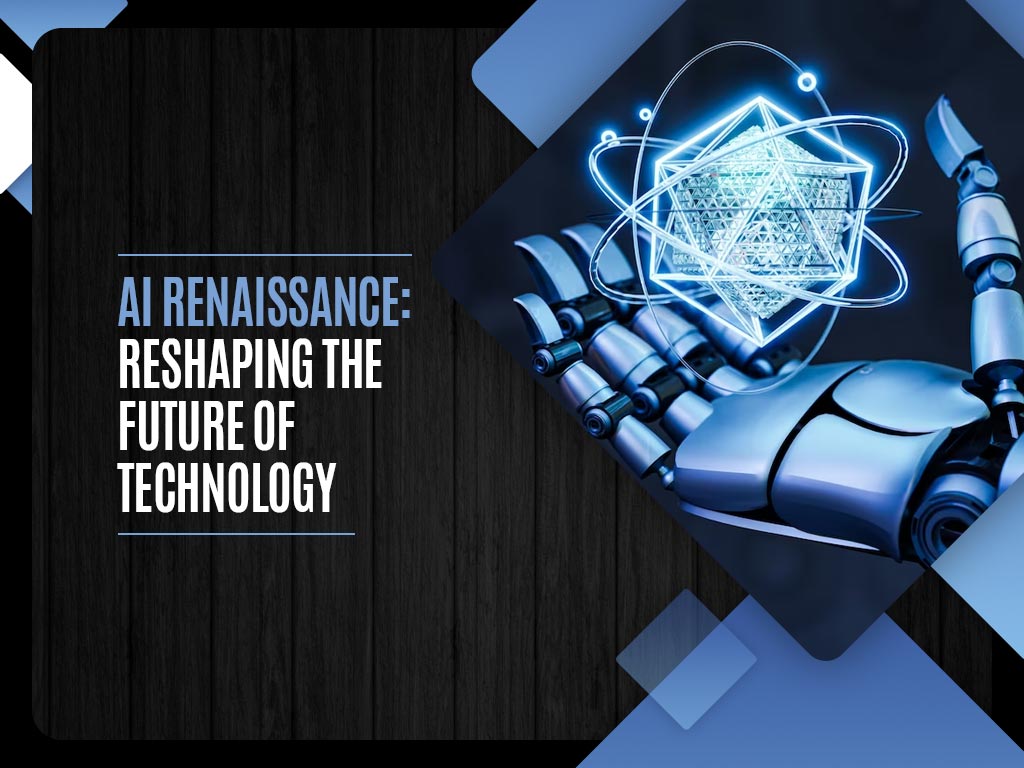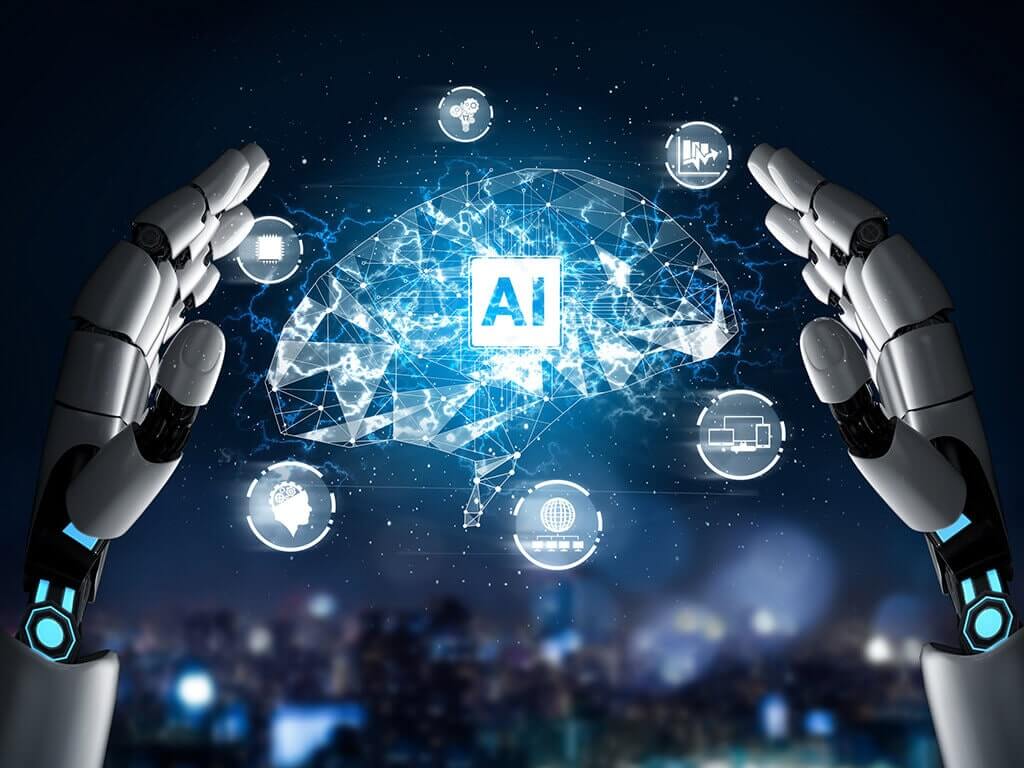AI Renaissance: Reshaping the Future of Technology
The AI Renaissance is ushering in a new era of technology, revolutionizing the way we interact and creating a future where technology

Introduction
The term “AI Renaissance” refers to the current era characterized by the rapid advancements and integration of artificial intelligence (AI) technologies into various aspects of our lives. It signifies a profound transformation in technology, similar to the historic Renaissance period that sparked a renaissance in art, science, and culture.
The AI Renaissance is marked by the emergence of AI-driven innovations that have the potential to reshape industries, enhance human capabilities, and redefine societal paradigms. This concept encapsulates the fusion of cutting-edge AI techniques with a profound impact on our technological landscape, much like the Renaissance era’s impact on cultural and intellectual progress.
Throughout history, humanity has experienced pivotal technological advancements that have shaped our societies and civilizations. From the invention of the printing press during the Renaissance to the industrial revolution’s mechanization, these transformative moments have altered how we live, work, and interact. Similarly, the present AI Renaissance mirrors these historical shifts.
Just as the Renaissance sparked an era of exploration, learning, and innovation, the AI Renaissance is unleashing a wave of unprecedented possibilities driven by AI’s capabilities. Understanding this historical context helps us appreciate the profound impact AI is having on technology and the world around us.
Artificial Intelligence Advancements in the Renaissance
The original Renaissance, spanning from the 14th to the 17th century, was a period of profound cultural, artistic, and intellectual transformation. It marked a shift from medieval traditions to a renewed focus on humanism, exploration, and scientific inquiry. Innovations such as the printing press and advancements in art, architecture, and science catalyzed a renaissance in human achievement.
Drawing parallels to the original Renaissance, the modern AI Renaissance is witnessing a transformation driven by artificial intelligence. Just as the Renaissance unlocked new realms of human creativity and understanding, AI is pushing the boundaries of what technology can achieve. The modern era’s renaissance is characterized by the integration of AI into diverse fields, from healthcare and finance to manufacturing and entertainment.
The resurgence of AI technology in the contemporary era is fueled by several factors. Advances in computational power, data availability, and algorithms have converged to enable the development of sophisticated AI models. Additionally, breakthroughs in machine learning and deep learning techniques have empowered AI systems to perform complex tasks with human-like capabilities. This amalgamation of technological advancements is propelling the AI Renaissance and reshaping industries and society at large.
AI Renaissance: Reshaping Industries and Society
The AI Renaissance is revolutionizing various industries. In healthcare, AI is enhancing diagnostics and personalized treatments. In finance, it’s improving fraud detection and algorithmic trading. Manufacturing is benefiting from AI-driven automation, while transportation is witnessing advancements in autonomous vehicles. Retail is experiencing personalized customer experiences through AI analytics, and entertainment is evolving with AI-generated content.
The integration of AI is reshaping societal norms. AI-driven virtual assistants have become part of everyday life, changing how we interact with technology. Conversational AI is altering communication patterns, and AI algorithms are influencing decision-making in areas like hiring and lending. As AI continues to evolve, its influencing education, healthcare delivery, and even social interactions challenging traditional norms and shaping new behaviours.
The AI Renaissance has economic implications, affecting jobs and industries. While AI is creating new job roles in AI development, data analysis, and AI ethics, it’s also automating routine tasks. The job landscape is shifting, demanding upskilling and reskilling for the workforce. Governments and industries are exploring policies to manage the transition, address job displacement, and ensure that the benefits of the AI Renaissance are equitably distributed.
The Impact of AI Renaissance on Technology
The AI Renaissance is a driving force behind transformative technological evolution. It’s not just about isolated AI advancements but a holistic change in how technologies are conceived, developed, and integrated. The renaissance is characterized by AI’s ability to augment and enhance existing technologies, leading to innovations that were once thought impossible.
The AI Renaissance is marked by the pervasive integration of AI into diverse domains. In healthcare, AI-powered diagnostics and drug discovery are transforming patient care. Finance is benefiting from AI-driven algorithmic trading and fraud detection. Automation powered by AI is improving production procedures in manufacturing. The cross-domain integration of AI is creating synergies that redefine possibilities across industries.
With great technological advancement comes ethical responsibility. The AI Renaissance raises critical questions about data privacy, bias in AI algorithms, and the potential for job displacement. The ethical implications of accountability, transparency, and fairness become more important as AI is integrated more deeply into decision-making processes. The challenge lies in striking a balance between innovation and ethical safeguards.
AI Renaissance: Unlocking the Future of Innovation
The AI Renaissance is unlocking unprecedented breakthroughs and innovations across various fields. From autonomous vehicles and natural language processing to personalized medicine and recommendation systems, AI-driven advancements are pushing the boundaries of what’s possible. These breakthroughs are reshaping industries, enhancing experiences, and addressing complex challenges.
The AI Renaissance is nurturing a culture of creative problem-solving and invention. AI technologies provide novel ways to analyze data, discover patterns, and generate insights. This, in turn, empowers innovators to approach problems from fresh angles and create solutions that were once inconceivable. AI tools are becoming integral to the innovation process, enabling rapid experimentation and iteration.
The AI Renaissance is a harbinger of an accelerated and transformative technological trajectory. As AI continues to advance, its integration with other emerging technologies like quantum computing, biotechnology, and the Internet of Things will amplify its impact. This convergence is poised to drive exponential progress and shape a future where AI is at the core of innovation.
The Role of Machine Learning in the AI Renaissance
Machine learning, a subset of artificial intelligence, is a pivotal driving force behind the AI Renaissance. It involves training algorithms to learn from data and improve over time, mirroring human learning processes. This connection has ignited a new era of AI capabilities, enabling systems to analyze vast datasets, recognize patterns, and make intelligent decisions.
Machine learning’s impact on the AI Renaissance is profound. Its algorithms empower AI systems to uncover insights and perform complex tasks autonomously. Whether it’s predicting consumer behavior, diagnosing medical conditions, or optimizing supply chains, machine learning is enhancing AI’s problem-solving abilities. Its adaptability enables AI to evolve, refining its understanding and responses through continuous learning.
Future Implications and Possibilities
Delving into the future, it’s intriguing to speculate on the trajectory of the AI Renaissance. As AI continues to advance, it’s likely that we’ll witness even more intricate applications across industries. The evolution might include self-improving algorithms, further autonomous decision-making, and the integration of AI into everyday devices and environments.
Anticipating developments in AI technology leads us to envision a world where AI seamlessly coexists with humans. From healthcare diagnostics driven by AI-powered analytics to fully autonomous transportation systems, the possibilities are immense. AI’s broader impact could encompass precision medicine, sustainable resource management, and breakthroughs in scientific research.
The AI Renaissance presents a dual challenge: Innovation and Ethics. Striking a balance between pushing the boundaries of AI and upholding ethical standards is paramount. As AI’s capabilities expand, ethical considerations must address issues of bias, privacy, and transparency. Collaborative efforts across industries, policymakers, and tech communities will be essential to ensure responsible AI development. To turn vision into reality, these collaborations are increasingly supported by expert-led implementation strategies and technical infrastructure. This is where AI development services play a crucial role in helping organizations build ethical, scalable, and cutting-edge AI solutions.
Conclusion
The AI Renaissance is a testament to the transformative power of technology. It’s reshaping industries, revolutionizing problem-solving, and redefining innovation. As we stand witness to this dynamic era, we’re reminded of the continuous evolution that AI is undergoing. Its potential knows no bounds, and its journey is one of perpetual growth.
In this exciting age of the AI Renaissance, staying engaged with advancements is crucial. As AI continues to shape the technological landscape, each individual has a role to play. Whether you’re a technologist, a business leader, or simply a curious mind, embracing AI’s potential and understanding its implications will shape the future.




